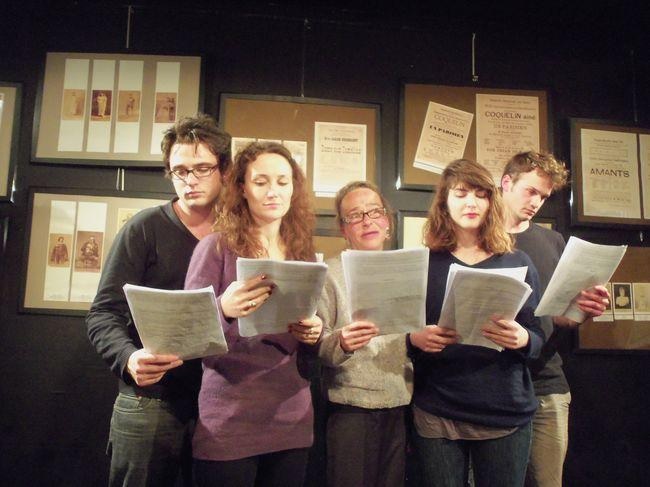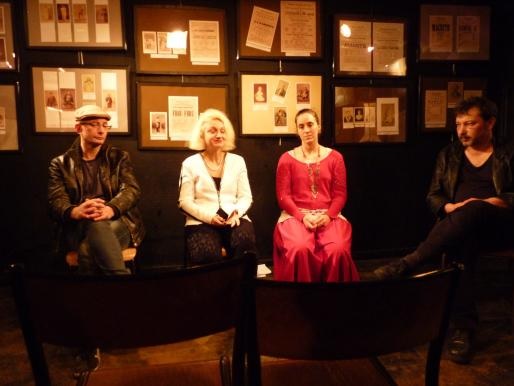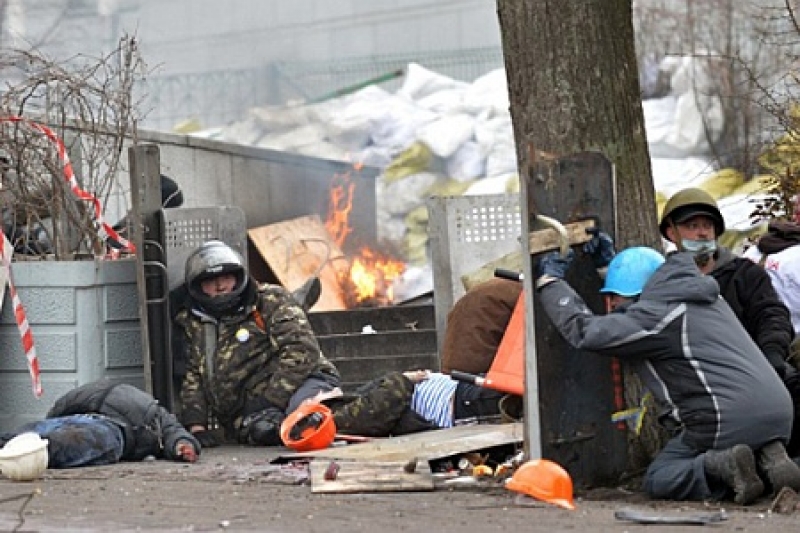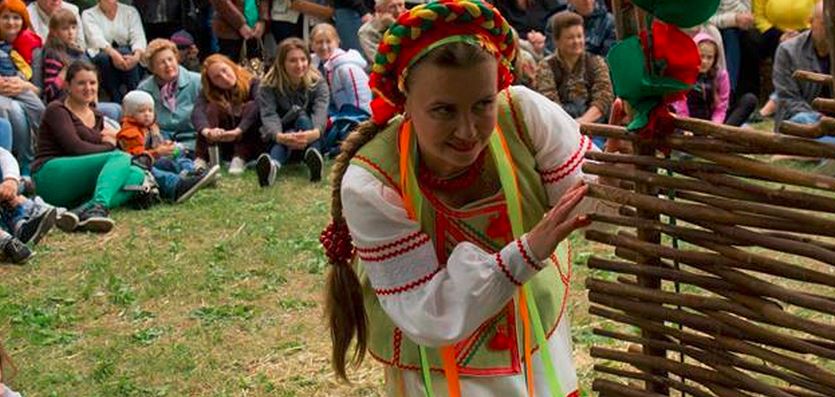"Maїdan Inferno" is the first Ukrainian play translated to French. Parts of it were staged as a public reading in France by a French theater troop. Symbolically, this play is based upon dramatic events of modern Ukrainian history, namely the night when the heart of the Revolution of Dignity – the Maidan Square was burning.
The play includes documentary facts, however, it is more about feelings and emotions of people who were there during fatal events. Characters of the play are ordinary people of different professions who found themselves together in struggle for freedom and democracy.
The first Ukrainian play performed in France
Estelle Delavennat, Ukrainian by origin, met the author in Paris when Ukraine was literally "on fire". Neda, Ukrainian, was writing the play then and discovered, that there was absolutely no Ukrainian plays in the French repertoire, and decided to coordinate the Ukrainian branch of the EURODRAM project with the House of Europe and the East (Maison d'Europe et d'Orient).
EURODRAM aims at translating plays from various countries and languages so that they can be performed anywhere else in the world. Estelle Delavennat together with Neda Nejdana translated some excerpts of plays and showed them in prestigious theaters.
For the authors it was obvious that the first Ukrainian play to be entirely translated to French would be "Maїdan Inferno", as their priority was to translate contemporary plays. Besides, the French public was getting more and more interested in Ukraine's affairs.

As Estelle Delavennat explains, she was following the Maidan events, and just like many people in the Ukrainian community in France, she wanted to be proactive. She decided to do the best she could to help Ukraine to be better known and understood in France. Translating "Maïdan Inferno" to French was a good occasion for that purpose.
"The most challenging thing for me was how to make Ukrainian culture and reality sound understandable for foreigners," - Estelle Delavennat says. However, she found interesting working on style, language level of each character at different moments of the play. At the time, as the translator explains, the play caused diverse emotions: curiosity, sympathy, admiration, sadness, support and determination.
Culture as a way to open Ukraine to the world
France is often criticized for lack of support for Ukraine. Meanwhile, Estelle says that everything is not so black and white.
"As in a lot of other countries, there are several visions of Ukraine in France. Unfortunately, a lot of people here have always seen Ukraine through the prism of what Russia says of it, and Russia does its best to keep the status quo. However, there are now people who do not consume the fakes instilled by Russian trolls and are sincerely curious about Ukraine and its culture."

She believes that as people will be able to understand that Ukraine has its own, very rich culture, they will be less compliable to Russian discourse saying that Ukrainians do not exist.
"Ukraine has to create its own voice on the international scene, and it is our duty to transmit it, for Ukraine's and France's sake, against extremism and obscurantism everywhere," Estelle says. As one of positive examples in Ukrainian – French relationships she describes the situation with Mistral ships: "Despite the lack of knowledge about Ukraine in France, the French government finally made the right decision: not to sell Mistrals to Russia".
Ukraine has to create its own voice on the international scene, and it is our duty to transmit it, for Ukraine's and France's sake, against extremism and obscurantism everywhere. – Estelle Delavennat
Estelle's credo is that culture is a tool for opening Ukraine to the world. She believes that such cultural events like performance of Ukrainian plays can raise attention to Ukraine in France and other countries. For example, she begins to see a growing interest for other Ukrainian modern art like Dakha Brakha's concerts in France.
The band already has its own French fans. Ukrainian actor and stage director Vlad Troitskyi is also well perceived after his performances in France. Estelle claims that it is necessary to continue such work in all fields of Ukrainian culture.
"During the performance, we could see that people were affected. In the audience, there were some directors, comedians, people from the Ukrainian diaspora and French people just curious about Ukraine. I am looking forward to seeing the real premiere of the play!" Estelle recalls the reception of the first performance of the play.
Since at the moment only extracts of the play were shown as a public reading only once, the organizers are looking for funds for the publication of the whole play. It is supposed to be published this year, and then performed.
Estelle Delavennat does not plan to stop there with translations of Ukrainian theater plays. One more work is already done for Maison d'Europe et d'Orient together with other translators. Also, they plan to edit an anthology of Ukrainian contemporary plays.




